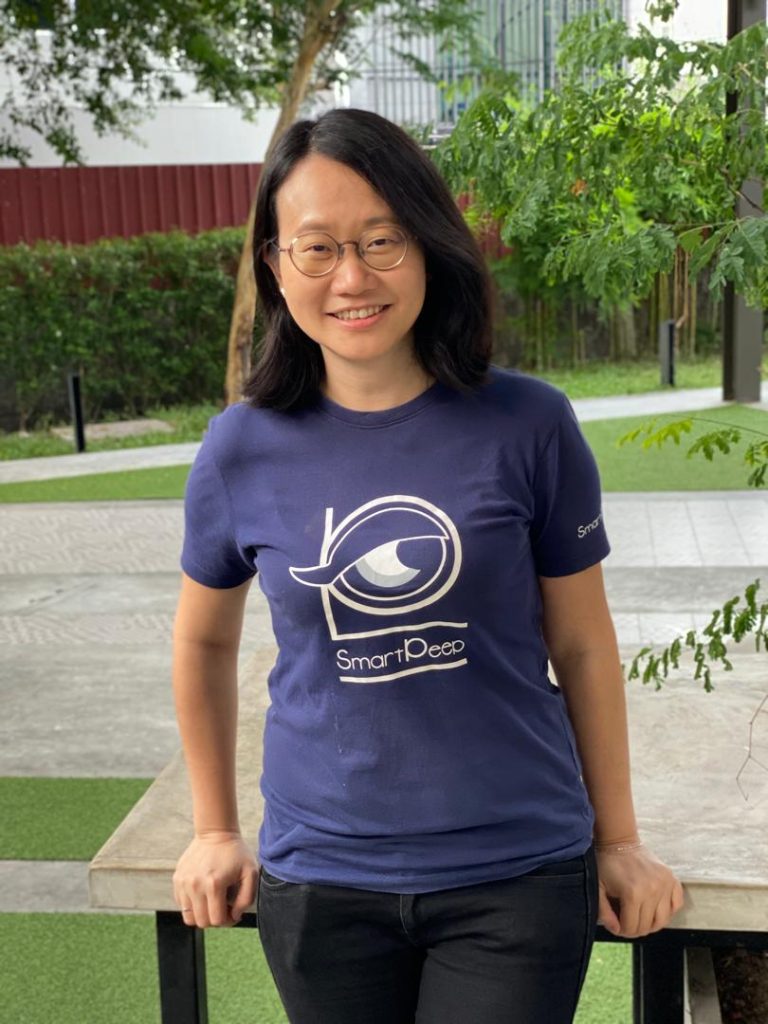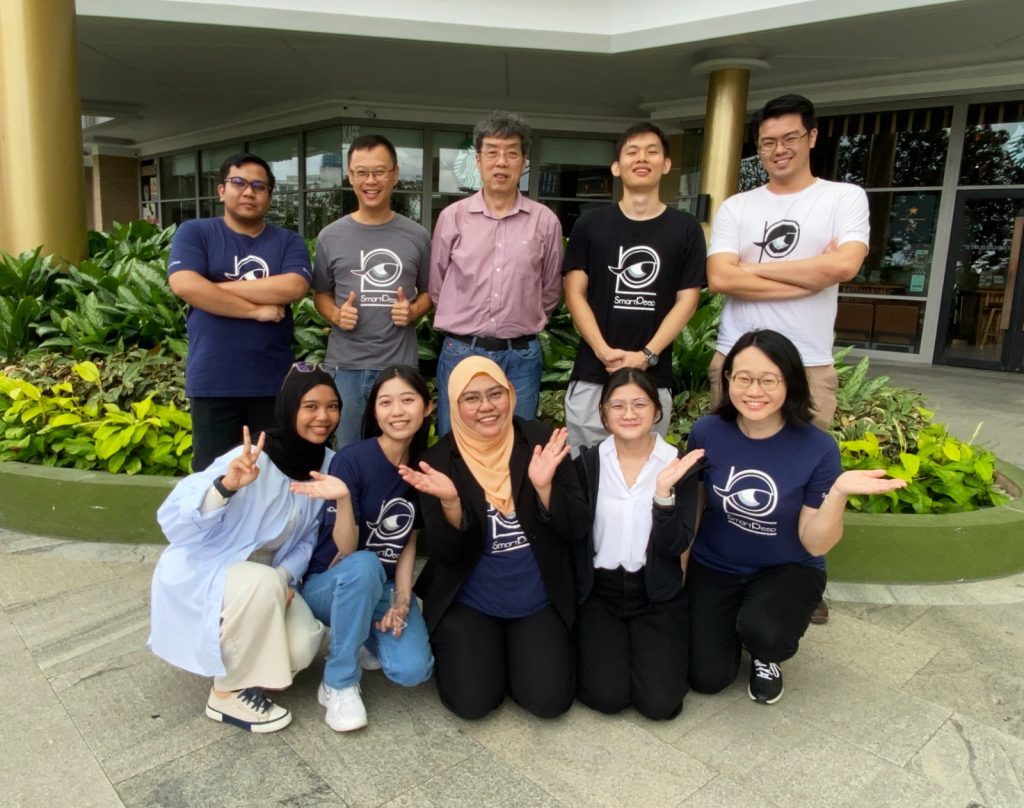We often hear stories of seniors experiencing falls and subsequently living with the injuries as a consequence. Some do not survive such falls, and that was the story behind the founders of SmartPeep, a Johor-based company producing Artificial Intelligence System (AI) surveillance cameras that send warning alerts if they detect the potential fall of a person.
“Whenever a senior experiences a fall, it can take hours to discover, and in cases like a heart attack, delayed assistance and treatment can be fatal. Our system captures the events in the area, and the AI server analyzes the scene for anomalies and risky movements.
“When risky movements are detected, it prompts alerts on the control panel to send an immediate signal to the devices of the caregiver, alerting the caregiver of the situation,” said Toh Ying Wei, the Chief Operating Officer of SmartPeep.
The idea for SmartPeep came about when brothers Lim Keng Hui and Lim Meng Hui’s grandmother had a fall in the neighbourhood, and she became fearful of leaving the house. Within a year, their grandmother’s health deteriorated, and she passed away.
Armed with a PhD and expertise in machine learning and pattern recognition, Meng Hui decided to utilize his skills to help prevent accidents among the elderly, together with his brother, who has an engineering degree and specializes in the hardware component of the company.
“Defining a fall is determined by movement. It’s like a kid climbing down from a bench. You can observe that the movement is steady. If a person feels dizzy, they might try to steady themselves by leaning on a wall; their head would tilt to one side,” said Toh, who holds a Master’s in Interactive Design.

A common scenario Toh sees are seniors with weak limbs attempting to move around.
“There are cases where seniors can walk but not far. When they move from one place to another, they may sit on the floor in between, and sometimes it’s challenging to differentiate whether it was a safe landing. Regardless, any suspicions will trigger an alert,” she said.
Toh explained that judgment of a potential fall and whether a senior needs medical attention is best determined by a caregiver.
“Seniors tend to deny whenever they are asked if they almost fell. We often see them saying: ‘No, I’ve got things under control’ or ‘I can handle it,’ and they are reluctant to go to the hospital, but caregivers can assess whether the seniors are being truthful or if it (the fall) was an actual safe landing,” she added.
The SmartPeep system detects any motion that mimics a fall or anomalies in an elderly person’s actions. This includes the motion of a senior getting off the bed or from a chair, when an elderly person has been in the toilet for an extended period of time, and in managing bedsores; it reminds caregivers when a bedbound elderly person has not been repositioned for hours.
“There are prevention tools to assist seniors, such as shower safety bars and rails, but we aim to address the problem at the start, when seniors begin to transition from the chair or wheelchair to go to the toilet.
“The likelihood of seniors falling after the first few steps as they move away from the wheelchair is high due to the lack of strength to support themselves,” said the 39-year-old.

Since their launch in 2018, SmartPeep is currently serving 22 nursing homes and hospitals across Malaysia, Singapore, Australia, the UK, and Japan, and during this period, they have had a few close calls with seniors.
“There was a senior living in an assisted living facility. He was mobile and could even drive. One day, our system triggered a few alerts, and by the third or fourth alert, this man, who was standing, started sliding to the side and fell to the ground.
“The nurses at the counter were alerted immediately, and they went to help him. Later, we found out that he was on the early onset of a stroke,” said Toh.
In the nursing homes and hospitals they serve, SmartPeep system detects when a patient is missing from the bed, has been loitering in the common areas for long hours, or enters a restricted area. The system then generates an event log and a monthly report for these businesses, listing the different categories in which alerts were triggered.
This year, SmartPeep launched their residential home product, which allows users to install the system in parts of the house.
“If people have a full-time caregiver or a helper in the house, they will receive alerts at the same time alerts are sent to the mobile phones of family members,” she explained. – Christine Cheah
All images credit SmartPeep






